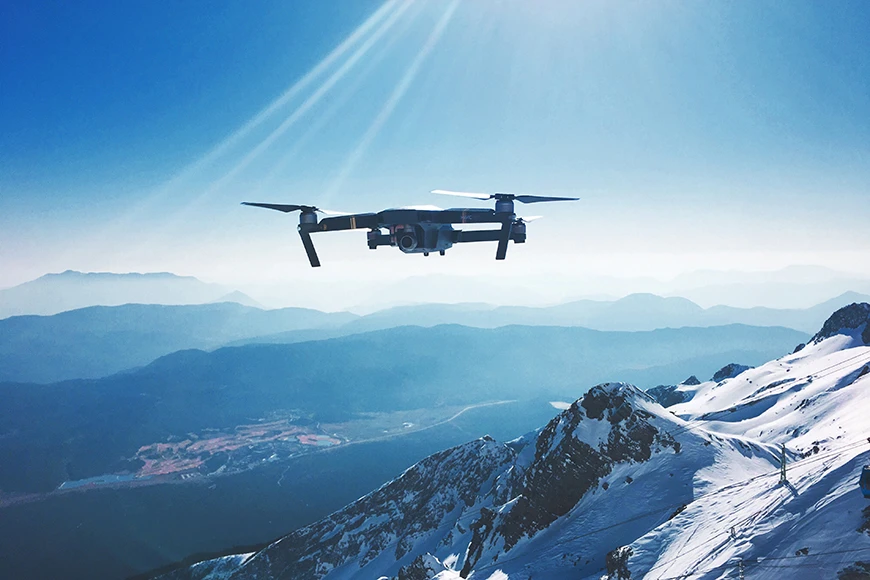Drones, or unmanned aerial vehicles (UAVs), have rapidly evolved from niche military applications to mainstream commercial and consumer uses. As technology advances, drones are becoming more intelligent, autonomous, and versatile, paving the way for groundbreaking innovations. This article explores the future of drone technology and the trends that will shape its evolution.
1. Autonomous and AI-Powered Drones
Future drones will rely heavily on artificial intelligence (AI) and machine learning for enhanced autonomy. Key developments include:
- AI-Based Navigation: Advanced algorithms will allow drones to navigate complex environments without human intervention.
- Real-Time Decision Making: AI-powered drones will process data instantly, improving efficiency in search and rescue missions, deliveries, and security.
- Swarm Technology: Multiple drones working in coordination will revolutionize agriculture, defense, and disaster response.
2. Drone-Based Transportation
As urban populations grow, drones will play a critical role in reshaping transportation, including:
- Passenger Drones: Companies like EHang and Joby Aviation are developing drone taxis that could reduce traffic congestion.
- Cargo Drones: Logistics companies will deploy large UAVs for long-haul cargo transport, reducing costs and carbon footprints.
- Hyperloop and Drone Integration: Future transport systems may integrate drones with hyperloop technologies for efficient movement of people and goods.
3. Advanced Battery and Energy Solutions
Battery life remains a challenge for drones, but upcoming advancements will address this through:
- Hydrogen Fuel Cells: Providing longer flight durations compared to traditional lithium batteries.
- Solar-Powered Drones: UAVs equipped with solar panels could enable continuous flight for surveillance and environmental monitoring.
- Wireless Charging Stations: Infrastructure for in-air charging will allow drones to extend their operations without landing.
4. 5G and Connectivity Enhancements
The integration of 5G technology will significantly improve drone communication, enabling:
- Faster Data Transmission: Real-time video streaming and cloud processing for immediate decision-making.
- Remote Operations: Enhanced control over long distances, making BVLOS (Beyond Visual Line of Sight) operations safer and more practical.
- Drone-to-Drone Communication: Drones will coordinate seamlessly, enhancing swarm technology applications.
5. Security and Surveillance Drones
Future drones will play a larger role in security and surveillance, offering:
- Autonomous Patrolling: AI-driven drones will monitor critical infrastructure, such as power plants and border areas.
- Facial Recognition Integration: Law enforcement agencies may use drones to track suspects and enhance public safety.
- Disaster Management: UAVs equipped with sensors will detect early signs of disasters like wildfires and floods.
6. Regulatory Developments and Ethical Considerations
As drone technology evolves, regulations and ethics will be crucial factors shaping its deployment:
- Air Traffic Management Systems: Governments will establish dedicated air corridors and rules for urban drone traffic.
- Privacy Laws: Stricter regulations will be necessary to prevent misuse and protect individuals from unauthorized surveillance.
- Safety Protocols: Autonomous drones must comply with strict safety guidelines to avoid accidents and cyber threats.
7. Drones in Space Exploration
Drones will not only transform Earth-based applications but also play a key role in space exploration, including:
- Martian Drones: NASA’s Ingenuity has paved the way for aerial exploration of Mars, with future missions expected to deploy advanced UAVs.
- Lunar Reconnaissance: Drones will assist in mapping and scouting potential moon colonies.
- Asteroid Mining: Autonomous drones may be utilized for surveying and extracting minerals from asteroids.
Conclusion
The future of drone technology is filled with limitless possibilities, from AI-driven autonomy to interplanetary exploration. As advancements continue, drones will become an integral part of transportation, security, logistics, and scientific research. With proper regulations and ethical considerations, they will not only enhance efficiency but also open new frontiers in innovation and exploration.

